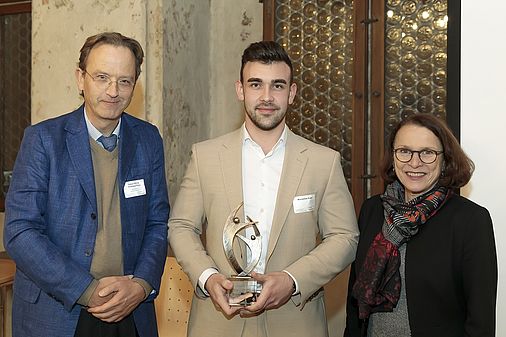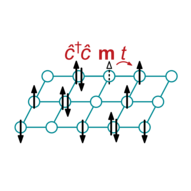
Chair of Computational Condensed Matter Theory
Condensed matter comprises more or less everything we see. To a very large extent, its properties result from the interplay of quantum mechanics and the Coulomb interaction between nuclei and electrons. This interplay keeps producing stunning phenomena many of which are still to be understood. To achieve this understanding is the goal we are striving at. To this and we combine computational means with analytic arguments. Our current emphasis is on transport and dynamics; recent research topics include:
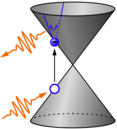
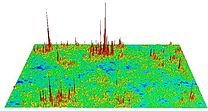
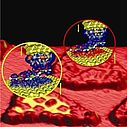
| Ultrafast Dynamics | Quantum Critical Phenomena | Molecular Electronics |
NEWS
Ultrafast probe of broken time-reversal symmetry
 Symmetries are a fundamental constituent of condensed matter physics. Led by Giancarlo Soavi (Uni Jena), we have developed an ultrafast optical method to detect broken time-reversal symmetry (TRS), i.e. differences of the band structure between +k and -k in the BZ. Our theory reveals the mechanism of TRS breaking and its detection!
Symmetries are a fundamental constituent of condensed matter physics. Led by Giancarlo Soavi (Uni Jena), we have developed an ultrafast optical method to detect broken time-reversal symmetry (TRS), i.e. differences of the band structure between +k and -k in the BZ. Our theory reveals the mechanism of TRS breaking and its detection!
Article: Nat. Photonics 19, 300 (2025)
Near-field optical tunneling emission (NOTE) microscopy
 Ever imagined capturing chemical reactions with atomic resolution on video? We take a step closer to this vision with ultrafast NOTE microscopy, developed by the group of Rupert Huber. Our real-time TDDFT simulations confirm the mechanism of NOTE microscopy!
Ever imagined capturing chemical reactions with atomic resolution on video? We take a step closer to this vision with ultrafast NOTE microscopy, developed by the group of Rupert Huber. Our real-time TDDFT simulations confirm the mechanism of NOTE microscopy!
Article: Nature 629, 329 (2024)
Press release in German and in English.
LDOS on ultrafast time scales
 What is the probability of finding an electron with energy E in a material at position r at time t? It is the time-resolved local density of states (LDOS) ρ(r,E,t) which can be measured by the groups of Rupert Huber and Jascha Repp! Our theory explains ultrafast variations of ρ(r,E,t) by phonons and image charge effects.
What is the probability of finding an electron with energy E in a material at position r at time t? It is the time-resolved local density of states (LDOS) ρ(r,E,t) which can be measured by the groups of Rupert Huber and Jascha Repp! Our theory explains ultrafast variations of ρ(r,E,t) by phonons and image charge effects.
Coverstory: Nat. Photonics 18, 595 (2024)
Press release in German and in English.
Accelerating electronic band structure calculations by a factor > 10000
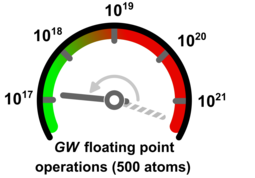 Interested in calculating the electronic band structure with GW ? Check out how to reduce the computation time by 4 (!) orders of magnitude! Suited for 2D materials & moiré structures, available open-source in the CP2K code.
Interested in calculating the electronic band structure with GW ? Check out how to reduce the computation time by 4 (!) orders of magnitude! Suited for 2D materials & moiré structures, available open-source in the CP2K code.
J. Chem. Theory Comput. 20, 2202 (2024)
CP2K inputs available at cp2k.org
Research snapshop available at the Gauss Centre for Supercomputing
Humboldt award for Prof. Latha Venkataraman, Columbia University
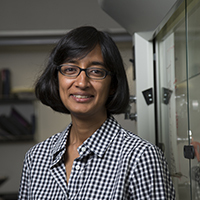 We congratulate Prof. Latha Venkataraman of Columbia University for being awarded a Humboldt Research Award by the Alexander von Humboldt Foundation (AvH). With this prestigious award, the AvH recognizes her groundbreaking work in molecular electronics. The award enables her to spend a year at the Faculty of Physics at the University of Regensburg (UR), where she will continue her research into the electrical conductivity of individual molecules in close collaboration with Regensburg working groups. (20. Nov. 2023)
We congratulate Prof. Latha Venkataraman of Columbia University for being awarded a Humboldt Research Award by the Alexander von Humboldt Foundation (AvH). With this prestigious award, the AvH recognizes her groundbreaking work in molecular electronics. The award enables her to spend a year at the Faculty of Physics at the University of Regensburg (UR), where she will continue her research into the electrical conductivity of individual molecules in close collaboration with Regensburg working groups. (20. Nov. 2023)
Prof. Evers elected into the DFG college of condensed matter physics
Prof. Ferdinand Evers has been elected as a member of the DFG specialist college of physics as one of the four German representatives of condensed matter theory. (15. Dec. 2023)
Brigitta and Oskar Braumandl prize for Max Graml
© Stadt Regensburg/Christian Kaister
Congratulations to Max Graml for receiving the research prize of the Brigitta and Oskar Braumandl Foundation! The award recognizes Max's outstanding contributions to advancing our understanding of high-harmonic spectra. The prize has been awarded during a ceremony in the historic city hall by Gertrud Maltz-Schwarzfischer, Mayor of Regensburg.
Article: Mittelbayerische, 13 November 2023. Further pictures available here.
Funding within the Emmy Noether Programme
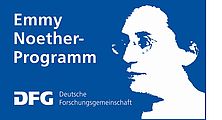 The German Research Foundation funds the proposal "Real-time quantum simulations of ultrafast exciton dynamics with atomic resolution" by Jan Wilhelm! With the funding, he will establish an independent junior research group at the University of Regensburg.
The German Research Foundation funds the proposal "Real-time quantum simulations of ultrafast exciton dynamics with atomic resolution" by Jan Wilhelm! With the funding, he will establish an independent junior research group at the University of Regensburg.
Highly conductive single-molecule topological insulators
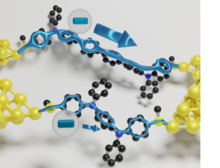 Researchers in Prof. Venkataraman's group (Columbia University, New York) have built organic topological-insulator wires, which show an unusual increase in conductance for longer wires. Our theoretical models support an interpretation of these results based on topology.
Researchers in Prof. Venkataraman's group (Columbia University, New York) have built organic topological-insulator wires, which show an unusual increase in conductance for longer wires. Our theoretical models support an interpretation of these results based on topology.
Reference: Nat. Chem. 14, 1061-1067 (2022)
Press release available at phys.org.
Chirality-induced spin selectivity (CISS) - progess and challenges
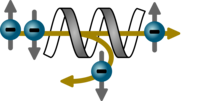 We review the theory of the CISS effect, that is, phenomena in which the chirality of molecular species imparts significant spin selectivity to various electron processes. We discuss CISS effects in electron transmission, electron transport, and chemical reactions.
We review the theory of the CISS effect, that is, phenomena in which the chirality of molecular species imparts significant spin selectivity to various electron processes. We discuss CISS effects in electron transmission, electron transport, and chemical reactions.
Reference: Adv. Mater. 34, 2106629 (2022)
Listed in the "Advanced Materials Hall of Fame".
Atomically resolved single-molecule triplet quenching
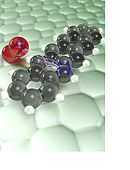 Led by Prof. Repp and Prof. Lupton (both UR), an experimental breakthrough has been achieved in measuring the energy transfer between a single oxygen molecule and a dye molecule. While first theoretical steps have been taken with success, a detailed understanding is yet to be worked out.
Led by Prof. Repp and Prof. Lupton (both UR), an experimental breakthrough has been achieved in measuring the energy transfer between a single oxygen molecule and a dye molecule. While first theoretical steps have been taken with success, a detailed understanding is yet to be worked out.
Original publication: Science 373, 452-456 (2021)
Perspective: Science 373, 392-393 (2021)
Press release available in German and in English.
Upcoming Events
- Workshop "Localization: Emergent Platforms and Novel Trends", Max Planck Institute for the Physics of Complex Systems, Dresden (September 16-20 2024, Coordinators: F. Evers, I. A. Gruzberg, A. Mirlin)
Popular and Outreach
- "Latte macchiato Physik - Exkursionen in der Kaffeetasse" (Abendveranstaltung am 21. September 2022 im Rahmen der "Highlights der Physik")
- "Machen Sie sich bitte frei - und diskutiere Sie mit: Die Wissenschaft und ihre Funktionäre - ihnen vertrauen oder misstrauen?" (aus der Reihe "Ein Campus - ein Buch", Diskussionsrunde am 23. Juni 2022 mit F. Evers und K. Rincke)
- Ferdinand Evers: Wissenschaft in der Lieferkette, Frankfurter Allgemeine Zeitung, 03.02.2021, Seite N4 (online access in the UR network)
-
Discussion "Kaum zu glauben? Glaube und Naturwissenschaft - das passt!"
Chair of Computational Condensed Matter Theory
Contact:
Prof. Dr. Ferdinand Evers
Dr. Jan Wilhelm
Institute of Theoretical Physics
University of Regensburg
Universitätsstraße 31
D-93053 Regensburg
Administration:
Sabine Lang,
Katja Herrmann-Nadolski
